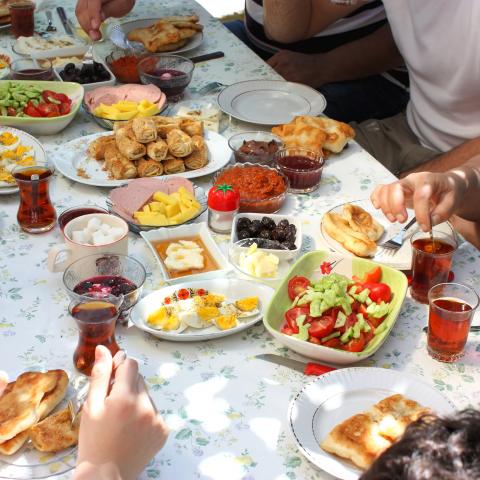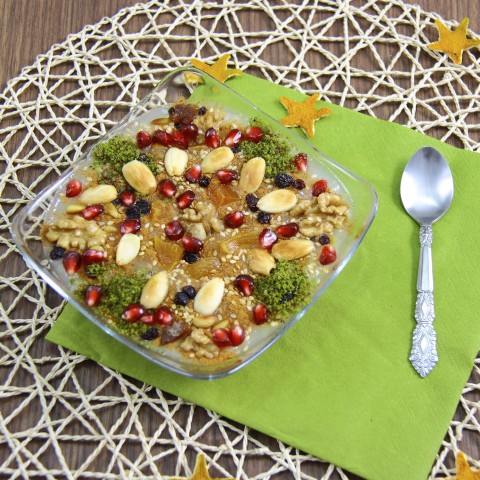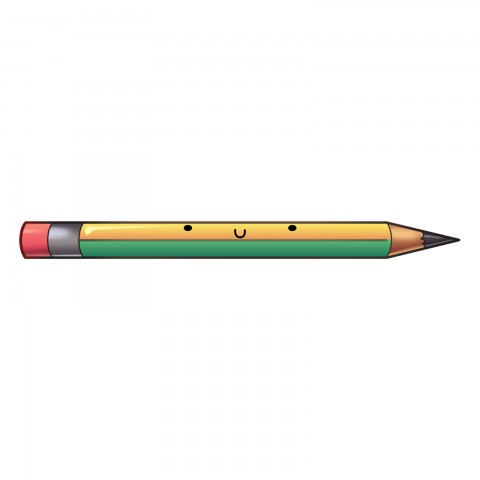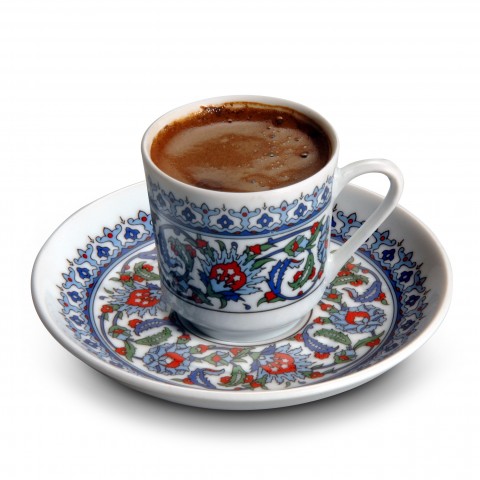
If you’re interested in different flavors and after some really delicious food, then you must be aware of Turkish food’s reputation as one of the tastiest cuisines worldwide.
Turkish cuisine is influenced by the Ottoman Empire. It’s known for its variety and its amazing flavor, and the foods you can expect to find varies based on region. While some regions have their own unique dishes, there are plenty of cases where those same dishes are made with different ingredients (or even different techniques) in other regions.
In this article, we’ll cover several Turkish foods that are worth tasting as well as a simple recipe you might want to try at home. Keep in mind that due to the cultural richness of Turkish cuisine, it’s impossible to mention all of the traditional Turkish foods here. You should consider finding a good Turkish cuisine restaurant near you to see—and try!—an even greater variety of dishes.
Are you ready to hear about all the mouthwatering food that awaits you?
 Table of Contents
Table of Contents
- The 5 Best Turkish Foods to Try
- A Typical Turkish Breakfast
- Delicious Turkish Pastries
- Kebabs and Meat Dishes
- A Variety of Appetizers
- Vegetable Dishes
- Yummy Desserts
- Food-Related Vocabulary
- A Delicious Turkish Food Recipe
- Final Thoughts
1. The 5 Best Turkish Foods to Try
I had to think hard about what to include here—not because there aren’t many good foods to pick from, but because there are so many wonderful Turkish cuisine dishes out there!
A- Mantı
This is the specialty of Central Turkey, and it’s originally from a city called Kayseri.
Mantı is like miniature ravioli stuffed with meat, but it tastes a bit different. It consists of small boiled handmade dumplings filled with ground meat. It’s served topped with yogurt, garlic, chili powder, and melted butter. Some people prefer to add ground sumac and dried mint, as well.
B- Döner Kebap
This consists of seasoned meat cooked on a vertical rotisserie (also called a rotating spit). Actually, döner means “rotates.” The meat is sliced into long, thin strips and can be served in different forms:
- Served on a plate on top of sliced pita bread with melted butter over it.
- Served on a plate on top of sliced pita bread with tomato sauce, yogurt, and melted butter over it. This is called İskender Kebap.
- Wrapped in a lavash with tomatoes, lettuce, and onion. This is called dürüm.
C- Yaprak Sarma
Sarma means “wrapping,” and this popular Turkish dish is basically grape leaves stuffed with spicy rice or spicy ground meat. The rice version is cooked with olive oil and served cold, while the ground meat version is served hot. It’s usually accompanied by yogurt at the table.
Preparation of yaprak sarma takes quite a bit of time, but it’s definitely worth it.
D- Çiğ Köfte
Çiğ köfte consists of spicy patties made of ground beef, fine ground bulgur, onion, pepper, tomato paste, spices, and herbs. The vegetarian version is made without meat. This dish is popular in the southern part of Turkey.
E- Künefe
This is a very rich dessert. Fortunately, it’s pretty difficult to make at home, so it’s not something you can eat all the time!
It’s made of shredded pastry dough (bread crumbs) and cheese, then topped with pistachio nuts.
2. A Typical Turkish Breakfast
Now, here comes my favorite meal. Would you like to join me in setting the table for breakfast?

Let’s open the fridge and take out the following:
- Butter
- Cheese
- There are three preferred types of Turkish cheese: white (feta) cheese, tulum cheese, and kaşar cheese.
- Olives
- Black and/or green olives can be found at most Turkish breakfast tables.
- Tomatoes and cucumbers
- Jam
- Most people make their jams at home. You can’t imagine the variety of jams we have: sour cherry, peach, apricot, orange, strawberry, quince, fig, bergamot…we even have watermelon, walnut, eggplant, and rose jams!
- Eggs
- They can be boiled, omelet-style, or menemen. Menemen is basically scrambled eggs cooked lightly with tomatoes, onions, and peppers.
Bread—usually toasted or freshly baked—is another popular Turkish food for breakfast, though some people prefer different pastries. For example, simit (round dough covered with sesame seeds) and poğaça (containing cheese, olives, potatoes, etc.) are two other common pastries in Turkey.
Another ‘must’ at the table: Tea. Tea is definitely a huge part of Turkish food culture!
3. Delicious Turkish Pastries
Here are some Turkish pastries most people have a hard time saying no to:
A- Börek
Börek is the generic name for pastries made with yufka, which is like filo dough.
This pastry is made up of thin layers of dough. The yufka for börek can be handmade or bought from a Turkish food market. Börek can have different ingredients in it (such as cheese, ground meat, spinach, or potatoes) and it can also come in different shapes (rolled, layered, etc.). Depending on its form, its ingredients, and the way it’s baked, it might have different names. For example:
- sigara böreği
- çiğ börek
- su böreği
- kol böreği
This pastry can be served during any meal, as a snack, or at tea time.
B- Gözleme
First, a lavash bread is made. Then, fillings such as cheese, spinach, ground meat, and potatoes are placed on it and the bread is folded over the filling. It’s then baked on a large metal sheet, called a sac.
C- Pide
Pide is made of dough and filled with cheese, ground meat, or small cubes of seasoned meat. Some people describe it as being boat-shaped, which is a good way to picture it. This pastry is usually eaten in a restaurant, not made at home.
D- Lahmacun
This is thin dough covered with a layer of spiced ground meat, tomatoes, peppers, and onions. Again, this is something we usually eat at a restaurant.

E- Katmer
Katmer is a rolled-out dough which can be sweet or salty depending on its filling.
4. Kebabs and Meat Dishes
Do you enjoy the succulent flavors of meat dishes? If so, here are some foods in Turkey you absolutely need to try!
A- Kebabs
Attention meat-lovers: Get ready for all of these delicious kebabs.
There are many different types of kebabs, originating from all over Turkey. Each type is made with meat, but the similarities end there. The seasonings, cooking methods, and non-meat ingredients all differ, and they can come in various shapes. Here are the most popular ones:
- Adana kebap
- Beyti
- Çağ kebabı
- Çöp şiş
- Kağıt kebabı
- Orman kebabı
- Talaş kebabı
- Tandır kebabı
- Tas kebabı
- Urfa kebabı
B- Meatballs
“Meatball” is köfte in Turkish. Meatballs are made of ground meat, and there are several unique varieties named after their city of origin. For example:
- İzmir köfte
- Manisa köfte
- İnegöl köfte
Other types of meatballs include:
- Kasap köftesi
- Dalyan köfte
- Misket köfte
C- Veggies with Meat
Here are a few Turkish dishes that contain a hearty dose of veggies along with the tasty meat.
Karnıyarık
This consists of baked eggplants filled with ground meat, seasonings, and parsley, then covered in a tomato sauce.
Hünkar beğendi
This dish was inherited from the Ottoman Empire. It’s basically soft, marinated lamb cubes served on top of an eggplant, which is pureed with butter and melted kashar cheese.
Etli dolma
Dolma is a dish where vegetables such as bell peppers, eggplants, tomatoes, and zucchinis are stuffed. They may also be stuffed with spicy rice or ground meat. This is another dish inherited from the Ottoman Empire.
Etli taze fasulye
This is basically green beans cooked with tomato paste, ground meat, and onions.
And that’s not all! There are plenty of Turkish meat-and-veggie dishes you can try. Just search online for some Turkish food recipes to discover more dishes like these.
5. A Variety of Appetizers
“Appetizer” is meze in Turkish, and Turkish cuisine features a very rich appetizer selection. I’ll mention just a few of them here.
- Acılı ezme: Made with mashed tomato with hot spices, onion, and green herbs
- Patlıcan salatası: Made with roasted eggplants, yogurt, and garlic
- Fava: Made with fava beans
- Kısır: Made with fine ground bulgur, tomato paste, onion, parsley, garlic, sour pomegranate juice, and spices
- Piyaz: Made with white beans, onions, and vinegar
- Cevizli biber: Made with red peppers, onions, pepper paste, and walnut
6. Vegetable Dishes
Vegetarians, are you still with me? Don’t miss out on these yummy veggie dishes.
Let me start with a very generic recipe. There’s a general term used to describe vegetables cooked with olive oil: zeytinyağlılar. To make this, green beans, peas, zucchinis, and kidney beans are cooked with tomatoes, onions, and olive oil. It’s served cold.
Now, let me list some more Turkish food for vegetarians:
- Baklalı enginar: Made with artichokes and fava beans; usually made in the summer
- Pırasa yemeği: Made with leeks, carrots, and rice
- Borani: Made with spinach, onions, yogurt, and garlic
7. Yummy Desserts
Now, here comes my favorite topic: delicious desserts!
A- Baklava
Baklava is probably the most popular and internationally recognized Turkish dessert. It’s made with handmade filo dough and consists of several layers. It contains chopped walnuts or pistachios, as well as syrup.
B- Güllaç
The history of güllaç goes back to the Ottoman Empire, and it’s usually served during Ramadan. It consists of thin and large dough layers, which are soaked in milk and rose water, and served with walnuts and pomegranate seeds.
C- Kazandibi
This is like a milk pudding, but the bottom part of it is burnt. This is another dessert inherited from the Ottoman Empire.
D- Aşure
This one is like a dense, sweet soup. It contains boiled beans, wheat, dried fruits, nuts, cinnamon, chestnuts, and rose water. There’s a legend about this dessert, according to which it was made for the first time on Noah’s Ark with seven different ingredients.

8. Food-Related Vocabulary
After learning about so many dishes, how about diving into a little Turkish food vocabulary?
A- Talking About Food
- En sevdiğim yemek köftedir. (“My favorite food is meatballs.”)
- Ben maydanoz sevmem. (“I don’t like parsley.”)
- Ben vejeteryanım. (“I’m a vegetarian.”)
- Çileğe alerjim var. (“I’m allergic to strawberries.”)
- Karnım acıktı. / Ben açım. (“I’m hungry.”)
- Karnım tok. / Ben tokum. (“I’m full.”)
- Açlıktan ölüyorum. (“I’m starving.”)
B- Terms for Cooking
Here are some words used during food preparation!
Actions
- Pişirmek (“To cook”)
- Fırında pişirmek (“To bake”)
- Kızartmak (“To fry”)
- Kesmek (“To cut”)
- Dilimlemek (“To slice”)
- Soymak (“To peel”)
- Doğramak (“To chop”)
- Rendelemek (“To grate”)
- Karıştırmak (“To mix”)
Ingredients
- Et (“Meat”)
- Sebze (“Vegetable”)
- Meyve (“Fruit”)
- Yağ (“Oil”)
- Su (“Water”)
- Tuz (“Salt”)
- Baharat (“Spice”)
- Un (“Flour”)
- Şeker (“Sugar”)
Utensils
- Çatal (“Fork”)
- Kaşık (“Spoon”)
- Bıçak (“Knife”)
- Tencere (“Cooking pot”)
- Tava (“Frying pan”)
- Ocak (“Range”)
- Fırın (“Oven”)

C- How to Order at a Restaurant
Finally, here’s how to order Turkish food at a restaurant:
- Menüyü görebilir miyim? (“May I see the menu?”)
- Ne önerirsiniz? (“What would you recommend?”)
- Su alabilir miyim lütfen? (“May I have water, please?”)
- Bu sos acı mı? (“Is this sauce spicy?”)
9. A Delicious Turkish Food Recipe
Hold on now, here comes a simple recipe for you to try making at home!
Let’s make a quick appetizer called havuçlu meze:
Ingredients:
- 4 medium carrots (peeled and grated)
- 500g yogurt
- 2-3 cloves of garlic (peeled and grated)
- ¼ bunch dill (chopped)
- 2 tbsp. of olive oil
- Salt (eyeball it)
Instructions:
1. First, heat the olive oil in a frying pan and then add the grated carrots.
2. Sauté them on medium heat until they soften.
3. Then add salt and stir.
4. Remove it from the range and let it cool.
5. Mix garlic and yogurt.
6. When the grated carrots are cooled, add your garlic yogurt and dill to it. Mix it altogether.
7. You can decorate it with parsley leaves before serving.
10. Final Thoughts
In this article, you learned about traditional Turkish food and some practical food-related vocabulary.
Which Turkish food do you want to try most, and why? Have you already tried some of the foods we mentioned? We look forward to hearing from you!
To get a better grasp of the Turkish language and culture, explore TurkishClass101.com and take advantage of our numerous audio and video lessons, themed vocabulary lists, and free resources (including this dictionary). If you have a Premium PLUS account, you can also learn and practice with a personal tutor using our MyTeacher service! And don’t forget to download the app for free so you can study anywhere, anytime.
Until next time, happy eating!













 Table of Contents
Table of Contents





 Table of Contents
Table of Contents













































